Data Facts Background Check: Everything You Need to Know
- Blog
- Employment Background Check Errors
Data Facts Background Check: Everything You Need to Know

Fact: Data Facts background checks aren’t always accurate. Here's how errors impact your career and how to fight back!
Data Facts offers all types of background check services, but mistakes can and do happen. Inaccuracies will harm your career and reputation. Find out how to address errors and how a lawyer can help.
With a name like Data Facts, you’d expect its background check reports to be reliable and factual. Unfortunately, that’s not always the case.
Data Facts provides various background check services across industries, including criminal background checks, motor vehicle monitoring, credit checks, and drug screening. Most of the time, those background check reports are accurate. However, errors happen way too often and when they do - it causes the subject of that background check report big problems. When errors appear in a Data Facts background check, they can cause significant issues but that doesn’t mean there’s nothing you can do about it. Understanding what to do about those errors can save your career and your reputation and make your future more secure.
As background checks have become a standard part of the hiring process, companies like Data Facts have risen to meet the demand. But as more background check companies emerge, it’s clear that some things never change:
- All background check companies must follow the same laws, including the Fair Credit Reporting Act (FCRA).
- Even with new technology, background checks can still be inaccurate.
- A single error on your background check can have life-altering consequences.
The background check lawyers at Consumer Attorneys share what we’ve learned about Data Facts, inaccuracies in Data Facts background check reports, and how we can help you dispute, fix, and overcome them and get the compensation you deserve for the damage they’ve caused.
What Services Does Data Facts Provide?
Data Facts, founded in 1989 and based in Memphis, Tennessee, markets itself as a full-service background check provider. It serves various industries and offers ongoing monitoring, like motor vehicle report tracking and drug screening. However, like any background check service, their reports are only as good as the data they pull—and mistakes happen.
Below is a breakdown of Data Facts' key services and what they involve:
| Service | Description | Risks of Inaccuracy | What You Can Do |
|---|---|---|---|
| Criminal Background Checks | Data Facts conducts extensive checks at the county, state, and federal levels to reveal convictions, pending charges, and sex offender registry status. | If the wrong person’s record is attached to your report, it could cost you a job or housing. | Request a copy of your background check and dispute any mistakes under the FCRA. |
| Employment Verification | This service verifies job titles, dates of employment, and reasons for leaving. Employers rely on it to confirm the accuracy of your work history. | Inaccurate employment information can unfairly reflect dishonesty or gaps in your résumé. | Collect pay stubs, offer letters, or other documents that support your work history. |
| Education Verification | Data Facts checks your academic degrees and certifications to confirm legitimacy. Employers often rely on this to make sure you have the qualifications required. | False information here can prevent you from getting hired, even if the error is on their end. | Obtain your official transcripts and certifications to dispute an incorrect background check. |
| Credit Reports | A detailed credit report that includes your score, debt levels, and payment history—crucial for financial roles. | Mistakes in your credit report can lead to lost opportunities, especially in jobs handling money or sensitive information. | Request a free copy of your credit report from the reporting agencies annually to check for inaccuracies. |
| Identity Verification | This service verifies your Social Security number, associated addresses, and potential aliases to prevent fraud. | A mix-up with someone else’s information can lead to devastating consequences if their criminal history is wrongfully linked. | Ensure your identity details are consistent across all documents (e.g., Social Security, driver’s license). |
| Drug Screening | Data Facts offers drug tests using urine, hair, or saliva samples. Employers use this to ensure a drug-free workplace. | False positives or mishandled samples can put your employment at risk. | Keep documentation of any prescriptions you may be taking that could influence results, and ask for a retest. |
| Civil Records Searches | Searches for lawsuits, judgments, and liens in specific counties, reveal more about a person’s legal history. | Incorrectly linking you to another person’s civil judgments or lawsuits can damage your financial and professional reputation. | Monitor your civil records by regularly reviewing your public records and disputing any errors. |
| Driving Records | This confirms driver’s licenses, driving records, and ensures compliance with safety regulations for driving-related jobs. It also offers ongoing monitoring. | Errors in your driving record can lead to wrongful termination in transportation or delivery roles. | Periodically request your driving record from the DMV to check for accuracy. |
How Long Does a Data Facts Background Check Take?
The length of time it takes to complete a Data Facts background check can vary depending on the complexity of the information requested. On average, a standard check can take three to five business days. However, comprehensive checks, such as those that involve criminal records across multiple states or extensive employment verification, can take longer—sometimes up to 10 business days.
If you’re in the middle of the hiring process and wondering how long does a Data Facts background check take, be sure to communicate with the employer or Data Facts for a more accurate timeline.
Who Uses Data Facts?
Data Facts provides background checks for a wide range of clients. Here's a look at their typical clients:
| Client Type | Description | Example Industries |
|---|---|---|
| Corporate Clients | Large corporations use Data Facts for comprehensive background checks to mitigate risks and protect their work environments. | Fortune 500 companies and multinational corporations. |
| Small Businesses | Data Facts helps small businesses make informed hiring decisions while avoiding legal and financial risks. | Local restaurants, retail shops, and tech startups. |
| Healthcare Organizations | These employers use Data Facts to screen for criminal activity, drug use, and other risks that could impact patient safety and care quality. | Hospitals, nursing homes, and private clinics. |
| Financial Institutions | Banks and other financial entities rely on background and credit checks to ensure employees are trustworthy when handling sensitive data and finances. | Credit unions, commercial banks, and insurance companies. |
| Education Institutions | Schools use Data Facts to ensure that employees have the necessary credentials and are safe to work with children or students. | K-12 schools, universities, and daycare centers. |
| Transportation Companies | Businesses that rely on drivers use Data Facts to monitor driving records and compliance with safety regulations. They also use ongoing monitoring to screen drivers periodically throughout their employment (regularly to continuously). | Trucking companies, delivery services, and transportation services (Uber, Lyft). |
What Happens After Your Data Facts Background Check is Completed?
Once your Data Facts background check is complete, you’ll need to stay on top of your Data Facts background check status. Employers typically access this through a portal, but you can request a copy directly from Data Facts to ensure there are no errors.
Remember, background check companies like Data Facts can only go as far back as the FCRA allows. Generally, they can report criminal convictions indefinitely but are limited to reporting civil judgments and other negative information for up to seven years. If you’re wondering how far back does a Data Facts background check go, keep this in mind and review the report carefully.
How a Background Check Lawyer Can Help
If you find inaccuracies in your background check, don’t wait. Errors like incorrect criminal records or false employment information can seriously impact your life. A consumer protection lawyer can help you:
- Identify the errors in your Data Facts background check report.
- File disputes with Data Facts and provide the necessary documentation.
- Fight for your rights under the FCRA, especially if your dispute isn't resolved.
- Seek damages for the harm these errors have caused to your career and emotional well-being.
Take Action to Protect Yourself
Background checks, when inaccurate, can lead to unfair treatment and missed opportunities. If erroneous data on a Data Facts background check has created problems for you, it’s time to act. Contact a consumer protection lawyer who can help you correct the record and fight for the compensation you deserve.
Frequently Asked Questions
The duration of a Data Facts background check can vary depending on the complexity of the search and the specific services requested. Typically, Data Facts completes most background checks within three to five business days. However, more detailed searches, such as those requiring verification of international records or compiling an extensive criminal history, may take longer. Employers often receive regular updates on the status of their checks, though each employer’s policies and ability to update a background check subject will vary. Delays can happen from waiting for responses from educational institutions, previous employers, or government agencies who need to supply records.
A Data Facts background check provides information about a job applicant or employee’s history. This can include criminal records, employment history, educational credentials, employment history, driving history, and financial background. These checks often involve verifying Social Security numbers, searching for aliases or previous addresses, and reviewing credit reports. Employers may also request drug screening and civil records searches to uncover lawsuits, judgments, and liens. The goal is to provide a thorough assessment that helps employers make informed hiring decisions, ensuring that candidates are reliable, trustworthy, and suitable for the roles they are applying for. Too often, mistakes in the report do not provide an accurate assessment.
The extent of a Data Facts background check depends on the specific requirements set by the employer and the industry regulations. Generally, criminal background checks cover the past seven to ten years and should align with state laws and the guidelines of the Fair Credit Reporting Act (FCRA). Employment and education verifications typically go back as far as necessary to confirm the applicant’s relevant history. For financial roles, credit reports may also look back several years to assess fiscal responsibility. Certain industries, like healthcare or childcare, may have stricter standards and require more extensive historical searches.
A Data Facts criminal background check reveals various elements of an applicant’s criminal history. This includes felony and misdemeanor convictions, pending charges, and any instances of incarceration. The check also searches for sex offender registry status and may include arrest records, depending on the jurisdiction and the employer’s requirements. Additionally, civil records such as lawsuits, judgments, and liens may be included if relevant to the role. A background check helps employers limit their liability by taking an extra step to ensure the safety and integrity of their workplace and helps them keep their workplace safe.


Daniel Cohen is the Founder of Consumer Attorneys. Daniel manages the firm’s branding, marketing, client intake and business development efforts. Since 2017, he is a member of the National Association of Consumer Advocates and the National Consumer Law Center. Mr. Cohen is a nationally-recognized practitioner of consumer protection law. He has a we... Read more

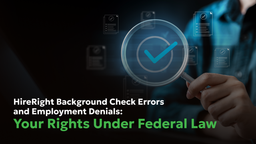


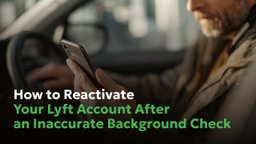
Related Articles
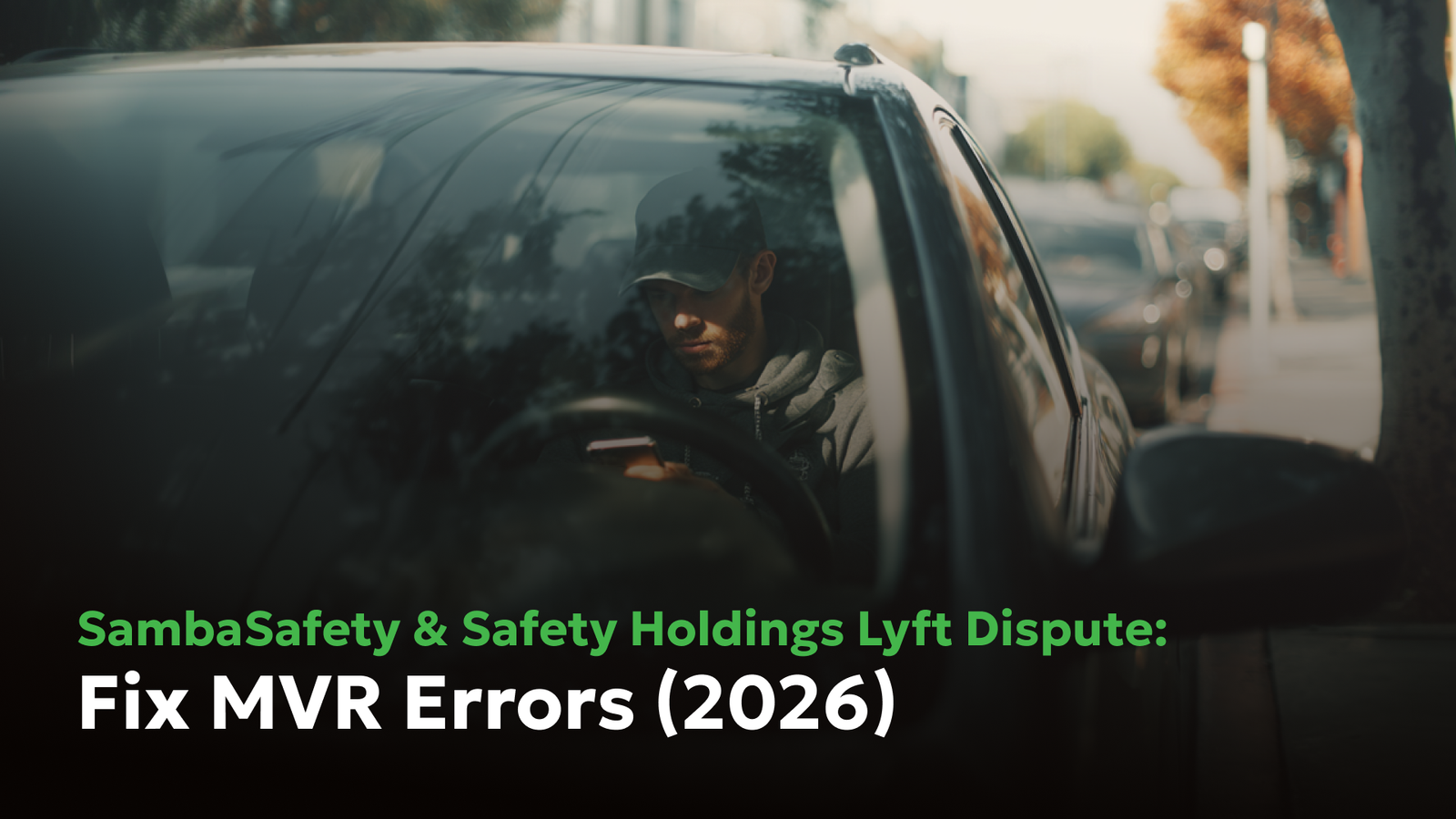
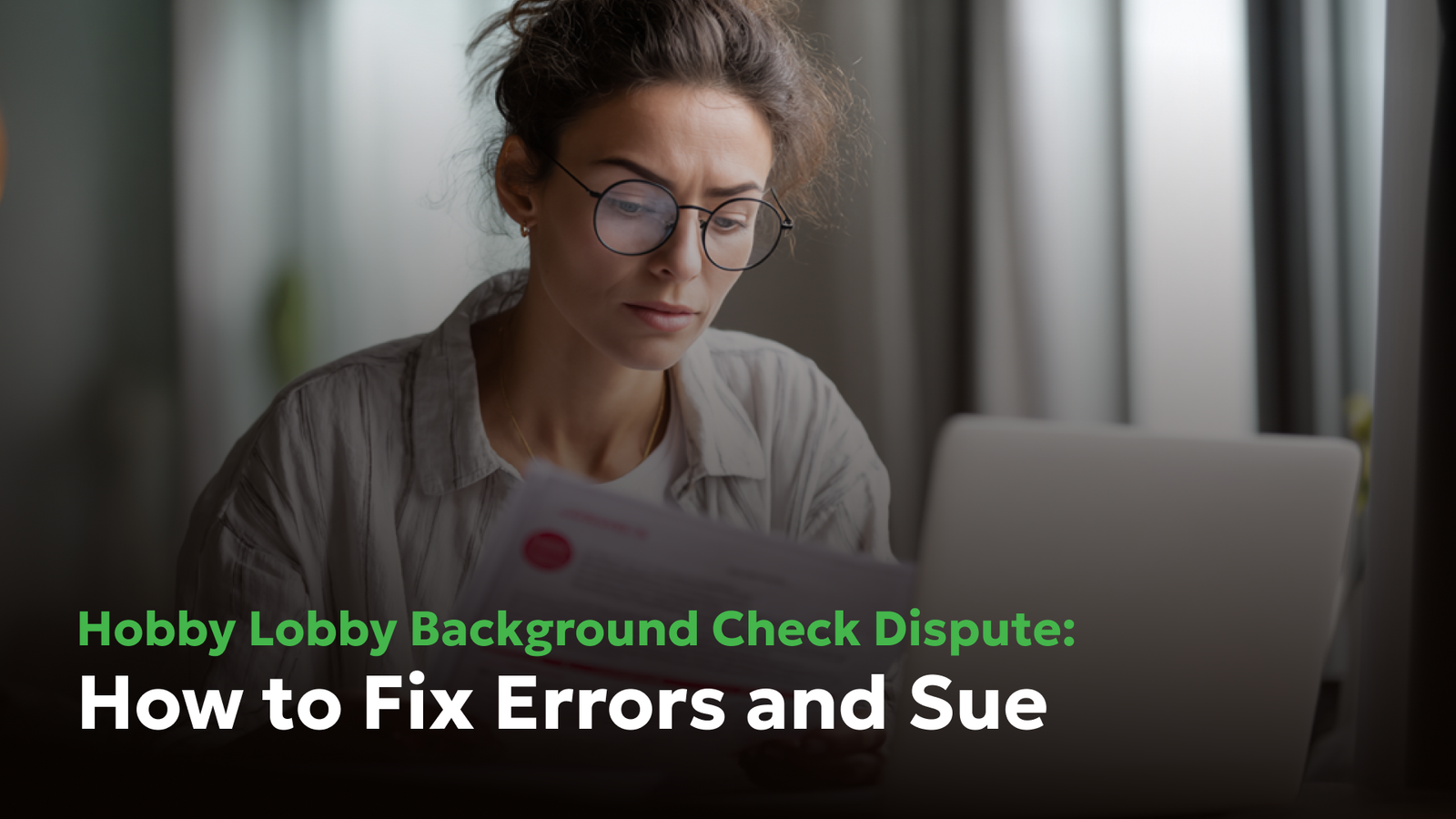
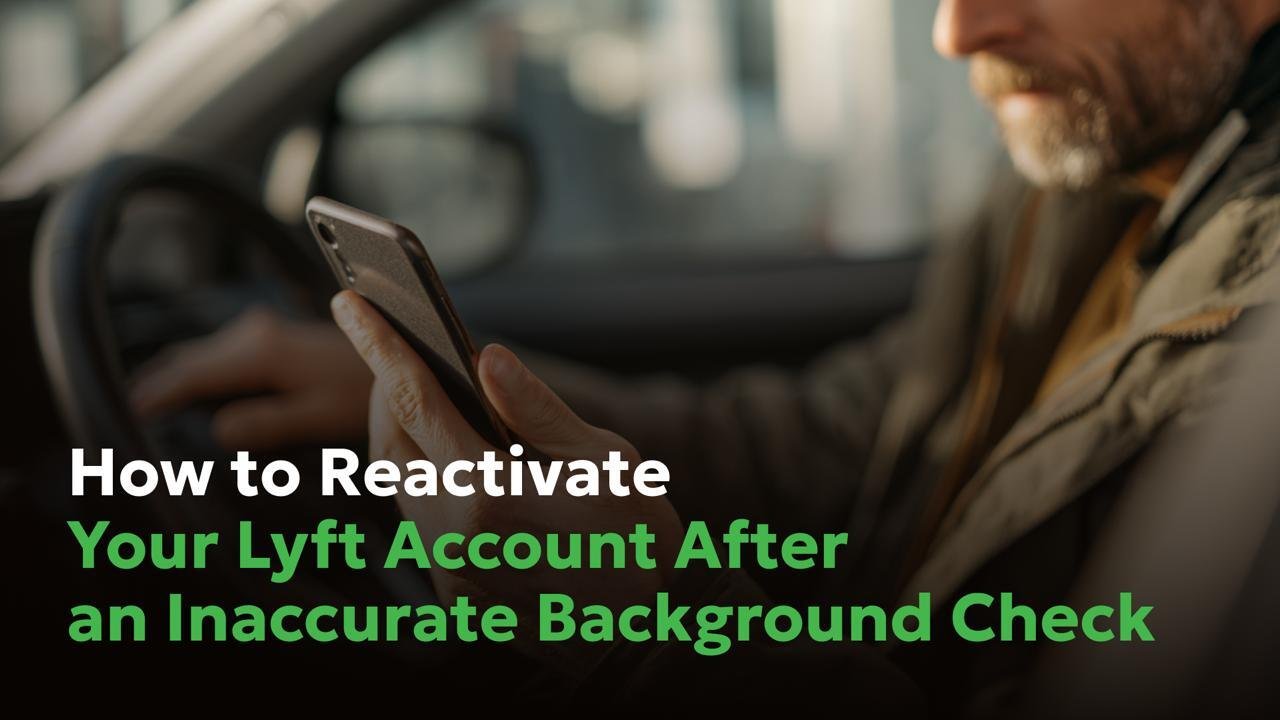
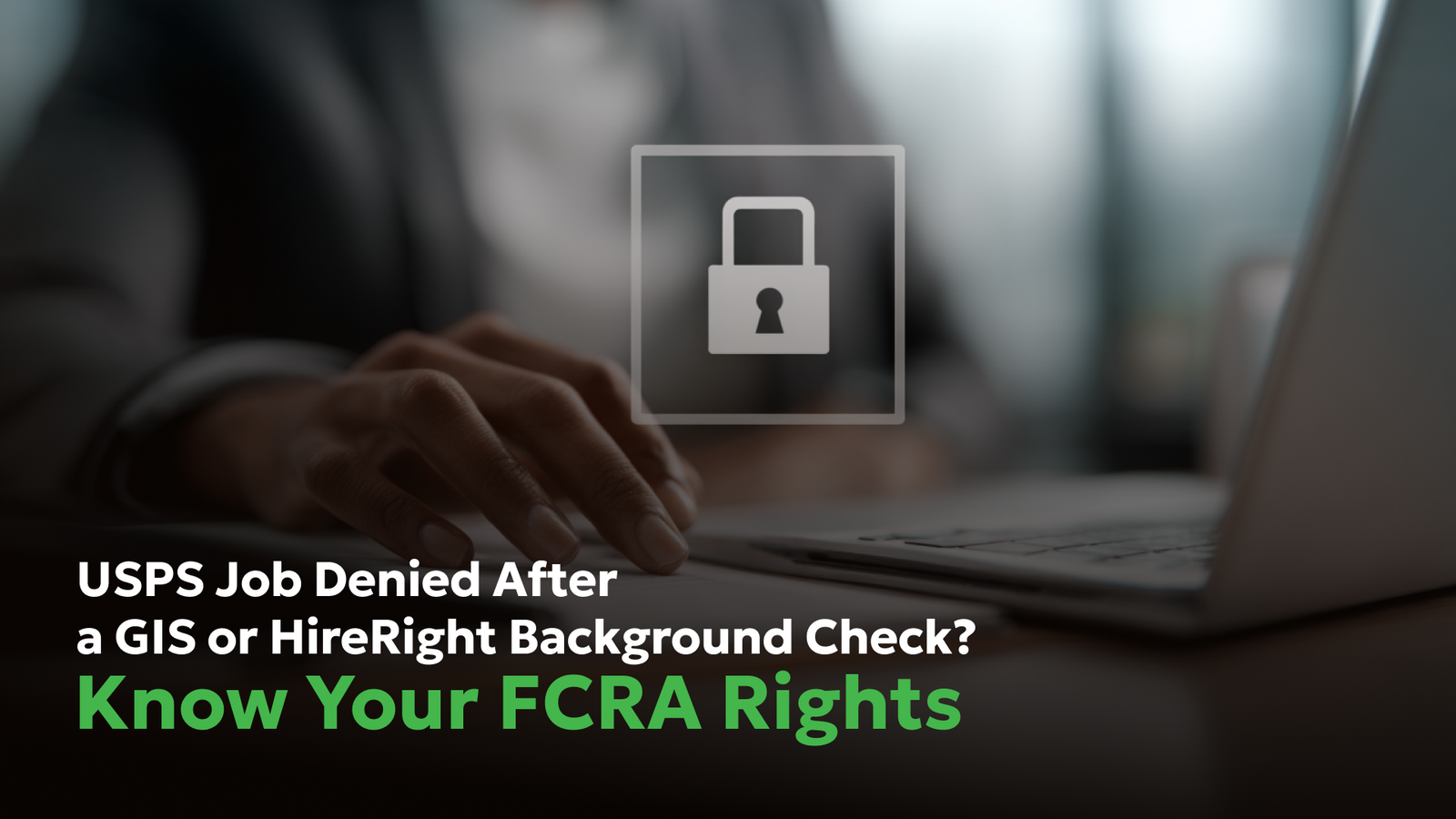
R
ONGS™You pay nothing. The law makes them pay.


